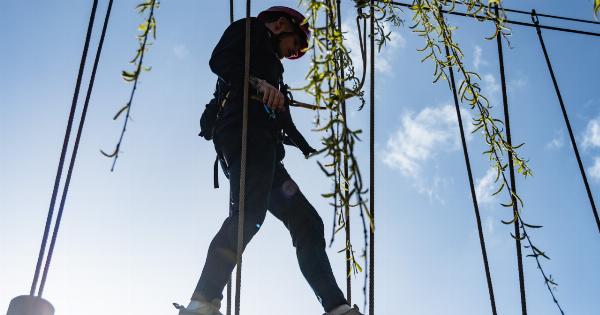Over the years, women’s sexual independence has been a topic of keen interest and discussion.
In recent times, there has been a notable surge in the recognition and pursuit of women’s sexual autonomy, with women actively taking charge of their own desires, needs, and pleasure. This shift marks a significant turning point in societal attitudes towards women’s sexuality and highlights the progress made in promoting gender equality.
Breaking Free from Traditional Roles
Historically, women have been subjected to societal expectations and limitations when it comes to their sexuality.
Traditional norms dictated that women’s sexual experiences should solely revolve around procreation and satisfying their male partners. Female pleasure and exploration were often disregarded or considered taboo. However, with the rise of feminism and the dismantling of gender stereotypes, women’s sexual independence is now being acknowledged and celebrated.
Empowerment through Education and Awareness
One crucial factor contributing to the rise of women’s sexual independence is the increased access to information and education surrounding sex and sexuality.
In the past, discussions around female pleasure were scarce and often surrounded by shame or misinformation. Today, comprehensive sex education and a growing body of research have empowered women with knowledge about their bodies, sexual health, and diverse sexual preferences.
Advances in Contraception
The availability and advancements in contraception have played a significant role in allowing women to take control of their sexual lives.
Effective birth control methods have provided women with the freedom to engage in sexual activities without the constant fear of unwanted pregnancies. This newfound reproductive autonomy has paved the way for women to confidently explore their sexuality without the fear of negative consequences.
Shifting Cultural Attitudes
The changing cultural attitudes towards women’s sexuality have also contributed to the rise of sexual independence.
Society’s growing acceptance of diverse sexual orientations, non-traditional relationships, and the recognition of consent as a fundamental aspect of sexual encounters has created an environment that encourages women to embrace and express their desires more freely. This shift has gradually eroded the stigma surrounding female sexuality and fostered an atmosphere of acceptance and respect for women’s sexual autonomy.
The Role of Media and Digital Platforms
In recent years, media and digital platforms have played a crucial role in shaping societal perceptions of women’s sexuality.
The rise of feminist movements and the amplification of women’s voices through various media channels have created spaces for discussions on women’s sexual liberation. From inclusive sex-positive content to online communities that provide support and empowerment, the internet has become a powerful tool for women to discover, explore, and celebrate their sexual independence.
Challenging Double Standards
Women’s sexual independence has also challenged the double standards that have long plagued conversations around sexuality.
While men have often been praised and admired for their sexual experiences and conquests, women have historically been subjected to judgment and derogatory labels when expressing their own desires. The rise of women’s sexual independence has brought attention to these disparities, emphasizing the importance of treating women’s sexuality with the same respect and agency afforded to men.
Embracing Pleasure and Self-Care
As women gain more agency over their own sexual experiences, there has been a growing emphasis on pleasure and self-care.
Women are now increasingly encouraged to prioritize their own desires, explore their fantasies, and communicate their needs to their partners. This shift has not only led to enhanced sexual satisfaction but has also fostered a sense of empowerment, self-worth, and overall well-being among women.
The Importance of Consent
Central to women’s sexual independence is the acknowledgment and prioritization of consent. Respect for boundaries and enthusiastic consent have become guiding principles in intimate encounters.
This cultural shift is a significant step towards ensuring that women have the autonomy to engage in sexual activities only when they feel comfortable and enthusiastic, further empowering them to explore their desires in a safe and consensual space.
Navigating Obstacles and Pushing for Further Progress
While the rise of women’s sexual independence is undeniably a cause for celebration, there are still obstacles and challenges that need to be overcome.
Socio-cultural barriers, such as lingering conservative beliefs and societal pressures, can hinder progress in providing comprehensive sexual education and support for women.
Additionally, certain marginalized groups, including women of color, LGBTQ+ individuals, and individuals with disabilities, face unique challenges when it comes to sexual independence and must be included in discussions and efforts towards further progress.
Conclusion
The rise of women’s sexual independence marks a significant societal shift towards gender equality and the recognition of women’s agency in their own sexual lives.
It is a testament to the progress that has been made in dismantling long-standing stereotypes and empowering women to embrace their desires and explore their sexualities freely. As society continues to evolve, it is imperative to continue supporting and advocating for women’s sexual independence, ensuring that all women have the opportunity to exercise control over their bodies, pleasure, and overall well-being.





























